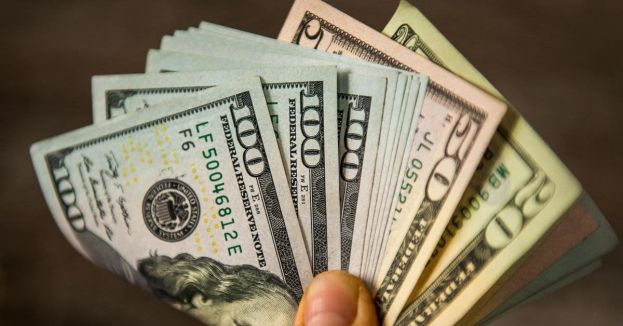The proposal, known as House File 2666, is sponsored by Democratic state Representative Athena Hollins and recently passed the House Children and Families Finance and Policy Committee through a voice vote. Given the Democratic Party's control over the governor's office and both legislative chambers, the bill has a high likelihood of passing.
If the bill aligns with its Senate counterpart, Senate File 2559, and is subsequently enacted, it would draw $100 million from the General Fund in the 2025 fiscal year. This sum would then be distributed to intermediary non-profit organizations, who would be responsible for disbursing monthly payments ranging from $350 to $1,200 to selected individuals and families for a period of 12 to 24 months.
WATCH: BRITISH COLONEL RICHARD KEMP REPORTING FROM GAZA![]()
March 15, 2024
Eligibility for this taxpayer-funded assistance is based on either current receipt of public benefits or a household income at or below 300% of the federal poverty guidelines. Notably, the bill does not require recipients to provide documentation proving their financial need or legal status.
WATCH: NO CLUE WHY THEY ARE PROTESTING: "I WISH I WAS MORE EDUCATED"![]()
The bill explicitly states that "grantees may set other eligibility requirements for the eligible recipients it serves under this section but must not require any other income, proof of residency or citizenship, or identifying documentation of any recipient."
TRUMP READY TO DEBATE BIDEN 'ANYWHERE, ANYTIME, ANYPLACE,' BUT WILL IT HAPPEN?![]()
Once enrolled in the program, recipients will not need to recertify their eligibility, even if their financial situation improves. Furthermore, these payments will not be considered income, thus not affecting recipients' eligibility for other welfare programs.
CRITICS SLAM BIDEN'S ATTEMPT TO RELATE PERSONAL TRAGEDY TO POLICE OFFICER DEATHS![]()
Republican state Representative Walter Hudson voiced concerns about the proposed legislation during the committee hearing, questioning the method of implementation and the lack of quality control over the intermediary non-profits.
"We have mechanisms within the state in order to facilitate [a universal basic income]," Hudson said. "We have our Department of Revenue. They could identify those who meet an income qualification and then provide monthly deposits through a secure cash-benefit system. Instead, what this bill does is it gets middlemen involved including nonprofits. As I see it, there are no quality controls on those nonprofits."
FROM DISGRACE TO REDEMPTION: DAN RATHER TO MAKE UNEXPECTED RETURN TO CBS![]()
Hudson also pointed out the bill's lack of measures to verify recipients, prevent potential abuses among intermediaries, and regulate how intermediaries spend funds on their employees.
Republican state Representative Ben Davis highlighted the absence of safeguards to prevent taxpayer-funded handouts from being misused on substance abuse.
KARMA IS A B*TCH: COUNCIL MEMBERS WHO CRITICIZED NYPD NOW BEGGING FOR THEIR PROTECTION![]()
"I've worked in alcohol and drug abuse recovery programs for 12 years, and I've seen a lot of abuse with government funds being spent on peoples' addictions," Davis said. "I would highly encourage us to have something in here that says, 'Hey, you got to turn in some receipts on what you are spending this money on.' We need more accountability."
BOMBSHELL REPORT: THE SECRET PLOT TO OUST KARINE JEAN-PIERRE![]()
Despite these concerns, Democrats appeared less worried about potential misuse. They did, however, acknowledge that the legislation could allow undocumented immigrants to receive monthly payments.
Hollins, the bill's sponsor, responded, "I do think that it is important that we extend this — because it's a pilot program — to individuals who may not have documentation."
SECRET SERVICE SHENANIGANS: VP HARRIS' BRAWLING BODYGUARD STORY TAKES A TWISTED TURN![]()
She suggested that including undocumented immigrants in the program would provide valuable data for future statewide implementation.
Democratic state Representative Liz Lee argued that undocumented immigrants contribute to the state's tax base and should therefore be eligible for the program.
"The Minnesota tax base is funded by undocumented and noncitizens," Lee said.
State Representative Carlie Kotyza-Witthuhn echoed Lee's sentiments, stating, "We earn $5.8 billion dollars off the backs of undocumented immigrants in the state of Minnesota. ... They are paying taxes, and we should be supporting them."
The proposed universal basic income program, which does not require legal documentation from recipients, could benefit undocumented immigrants who already heavily rely on federal welfare benefits.
According to a December report from the Center for Immigration Studies, which cited data from the 2022 Survey of Income and Program Participation, approximately 59.4% of households headed by undocumented immigrants utilized at least one major taxpayer-funded welfare support.
The report also indicated that, as a group, undocumented immigrants use every welfare program at significantly higher rates than U.S.-born citizens, with the exception of Supplemental Security Income, Temporary Assistance for Needy Families, and housing.
A November 2023 report from the House Committee on Homeland Security estimated that "for every one million parolees released into the United States on [Department of Homeland Security Alejandro] Mayorkas' watch, the cost in federal welfare benefits that will be incurred could total $3 billion annually, with those costs starting to kick in January 2026."
Blaze News previously reported that the estimated annual cost to house known gotaways and undocumented immigrants released into the country under Biden's administration is $451 billion.
House File 2666 will next be considered by the state House Human Services Finance Committee, according to Alpha News.








 Discover alternative ideas that will make you think
Discover alternative ideas that will make you think Engage in mind bending debate
Engage in mind bending debate Earn points, rise in rank, have fun
Earn points, rise in rank, have fun


